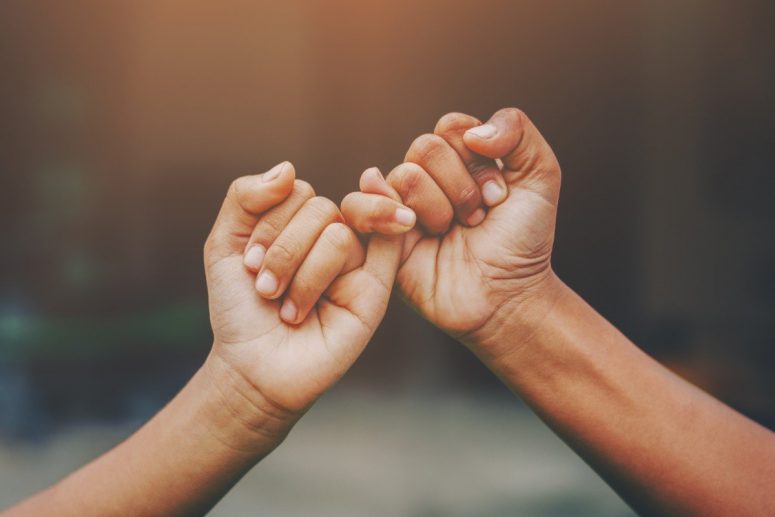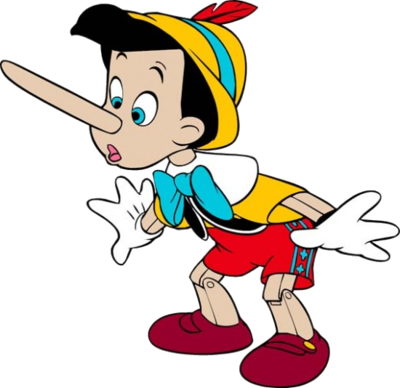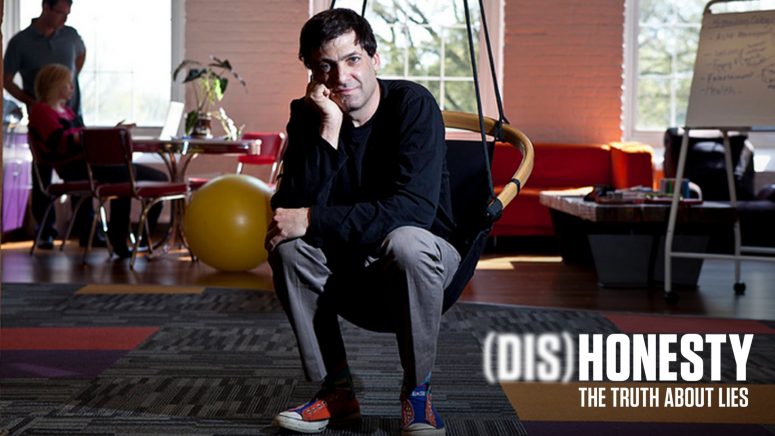
The following comes from my self-mastery newsletter, which you can subscribe to here.
Being honest with others is hard enough, especially when it involves any embarrassing, compromising, or (heaven forbid) incriminating information. If honesty really is the best policy—which all behavioral psychologists agree with—then we will spend a lifetime trying to master this crucial, trust-building, but difficult skill.
If that wasn’t hard enough, I’ve got some more uncomfortable news for you: being honest with yourself might be even harder. That’s because we often lie to ourselves for extended periods of time about the person we really are, so we don’t have to confront the parts of ourselves that we don’t like.
That explains why so many people delude themselves or live in denial. If we are close to perfection or blameless in our own mind’s eye, then we don’t have to change. We just need to wait for others in the world to change for us. This, of course, is a recipe for stagnation. Not to mention loneliness, depression, and remorse.
Heavy stuff, I know. But I have some good news. All of us can learn to be more honest with ourselves and others, even if we were raised around bad examples of both. Granted, doing this is a life-long endeavor, but we can all increase momentum and hasten our own awesomeness by practicing the following: Continue reading…

Fox Networks
Even if you think you’re honest person, your integrity will forever be challenged, usually when you least expect it.
I recently learned this lesson after a client tried to overpay me by $20,000 on two separate occasions. The first time they simply wired the money into my account without realizing I was already paid. “Either they sent duplicate payment or liked my work so much they gave me a huge bonus,” I thought to myself. I knew it was the former, but sat on the blunder for a few days before notifying the client.
The reason: The devil on my left shoulder made a convincing argument. “Blake,” he said, “maybe you didn’t invoice them the first time?” Nope, I checked my records. I’ve been paid in full. “Okay,” he went on, “but they’re a billion dollar company. They won’t even notice the misplaced $10,000.”
“I doubt it,” the angel on my right shoulder replied. “Imagine if someone got fired for this. Besides, you didn’t earn this money. It doesn’t matter if you omit or commit theft—stealing is wrong. You’re better than this.” Continue reading…
 Via Business Insider:
Via Business Insider:
How can we stop such trends toward dishonesty (in this case, broader acceptance of illegal downloading)? The problem is that if someone has acquired 97% of their music illegally, why would they legally buy the next 1%? Would they do it in order to be 4% legal? It turns out that we view ourselves categorically as either good or bad, and moving from being 3% legal to being 4% legal is not a very compelling motivation.
This is where confession and amnesty can come into play. What we find in our experiments is that once we start thinking of ourselves as polluted, there is not much incentive to behave well, and the trip down the slippery slope is likely. This is the bad news. The good news is that in such cases, confession, where we articulate what we have done wrong, is an incredibly effective mechanism for resetting our moral compass.
First published November 5, 2012

Courtesy YouTube
I recently watched (Dis)Honesty: The Truth About Lies. This is what I learned:
- Honor codes, moral self-reminders before brushing with temptation, and asking others to be honest in tempting situations can reduce dishonesty to almost zero, researchers found.
- People are increasingly dishonest as they distance themselves from tangible things (i.e. its easier to steal digital money than tangible money, and it’s easier to cheat in golf by kicking your ball while looking away as opposed to picking it up). To heighten honesty, look at ill behavior right in the face before doing it.
- Everybody is dishonest. Everybody. And all nationalities are equally dishonest, researchers found. It’s just that foreign cultures feel more dishonest because they cheat in unfamiliar ways.
- Scandinavian economies and The U.S. have the world’s highest levels of social trust—Africa and South America the least, which has a dramatic effect in the size and health of those respective economies.
- Bankers cheat twice as much as politicians. Lying can be appropriate when it’s done for the good of others as opposed to selfish reasons and only if the truth wouldn’t later upset the person that was deceived (i.e. telling a hysterical passenger on a crashing plane that you’re an aeronautics engineer and everything is going to be okay or lying to your children to keep them out of imminent danger or harm’s way).
Highly recommended. Four stars out of five.
According to a recent Gallup poll, a majority of baseball fans (57%) think Roger Clemens lied last month when he told Congress he had never taken performance enhancing drugs. Despite this, 62 percent of fans surveyed believe Clemens should still be in the Hall of Fame.
What??!!
As a reminder, The Hall of Fame’s motto is “preserving history, honoring excellence, and connecting generations.” Clemens’ induction, if convicted, would preserve history alright, but what about honor and example (read: connecting generations)?
Continue reading…



 Via
Via 